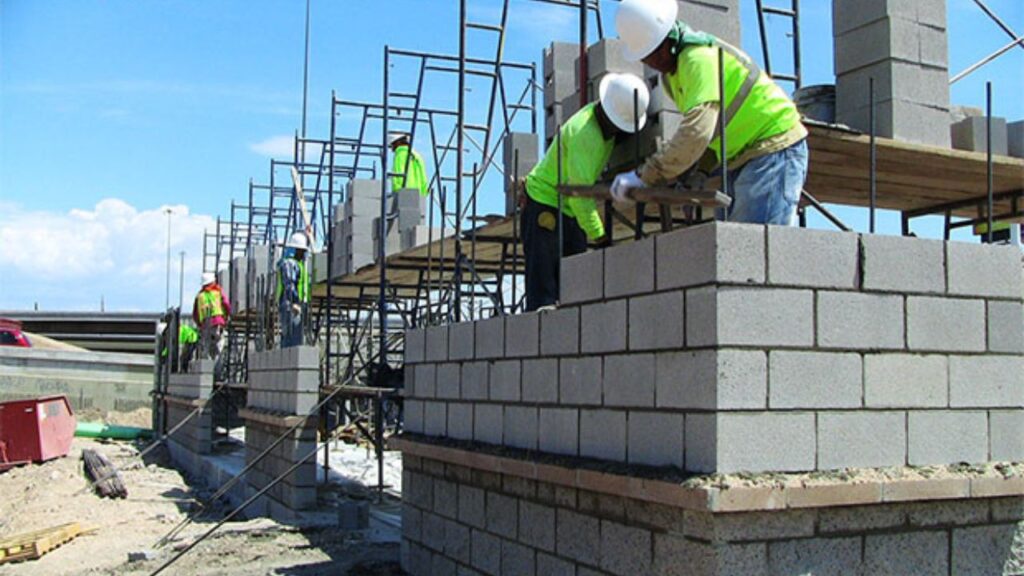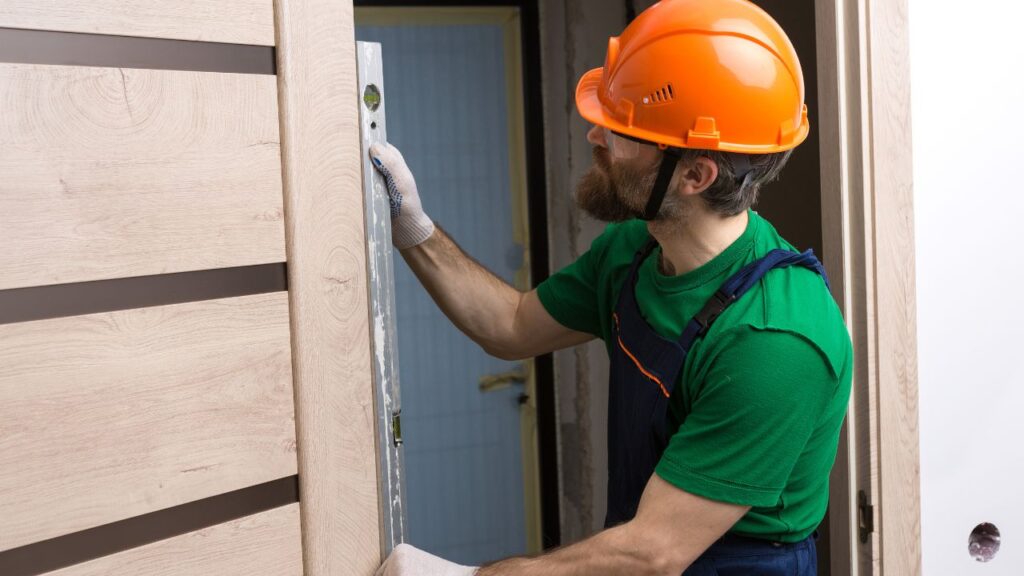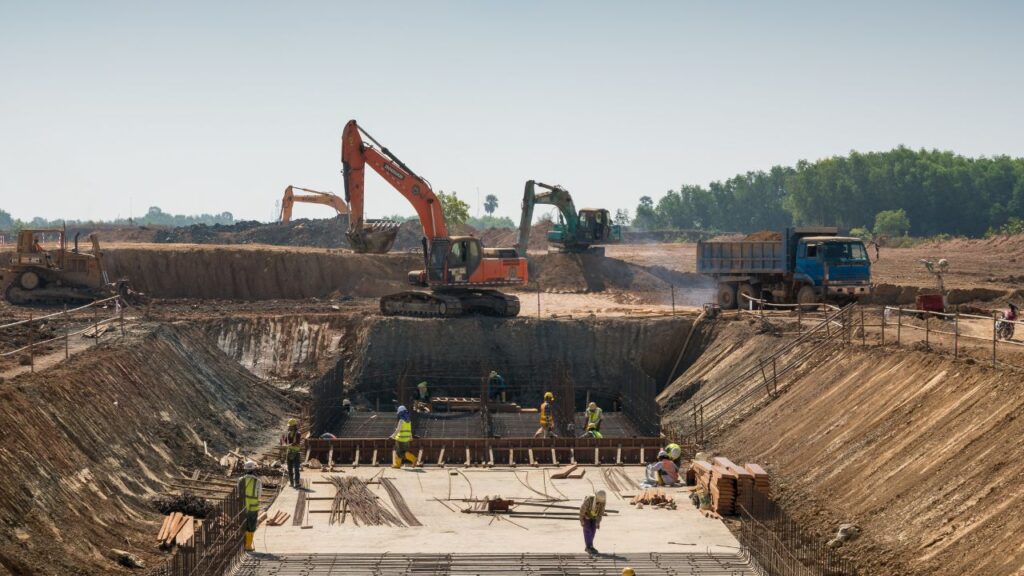- Homepage
- How Much Does it Cost to Wire & Rewire a House?
How Much Does it Cost to Wire & Rewire a House?
Leading provider of wire & rewire services.
The national average cost to wire a new house is between $5,000 and $12,000. The average homeowner needs to pay $10,000 for new wiring, panel, outlets, and switches installed in a 2,000 sq. ft. house. This project’s low cost is $1,800 for new electrical wiring in a 500 sq. ft. addition, the high cost is $35,000 for rewiring an older home with hard-to-access electrical wires, a panel upgrade, and updated fixtures, outlets, switches, heavy cabling, and jacks.
| Electrical Wiring Cost | |
|---|---|
| National average cost | $10,000 |
| Average Cost | $5,000 – $12,000 |
| Low-end | $1,800 |
| High-end | $35,000 |

Electrical Wiring Cost by Different Type
Electrical wiring is running wires or cables to the cities of the house. This is done by the walls and usually includes ensuring the different components and connections are in place for use, such as outlets, switches, and panels. This process is easier in new house construction because it is done before the walls are finished. This makes the process easier and keeps costs down.
Electrical rewiring happens in a house with old wires that no longer work safely. It is more labor-intensive because older wires must be removed first.

| Type | Average Costs per Square Foot (Installed) |
|---|---|
| New Construction | $3 – $5 |
| House Rewiring | $6 – $10 |
Electrical Wiring Cost for a New House
Electrical wiring in a new house construction costs between $3 and $5 a square foot on average. Wiring for new house construction is considerably easier than for older houses. The electrical wiring goes in before the walls so that the process is easier and less labor-intensive. In most cases, new electrical wiring includes roughing in the wires, installing things like outlets, panels, and switches, and setting up fixtures and lights. It can also include the wiring for ethernet cables and other “heavy” wiring. Wiring for a new house is always unique to the house and house owner’s needs, so it varies in overall costs.
Electrical Rough-in Cost
Roughing in the electricity costs between $3 and $6 a square foot. This is adding the electrical wiring but not finishing it. The electrical wires are capped where outlets, light fixtures, and appliances are later installed. In most cases, the rough-in cost is not broken out of the total electrical wiring cost, meaning you still need to pay $3 to $5 a square foot total because the walls can be finished once the rough-in is complete. Then, the electrician returns to finish the wiring job. This completes the project, so the costs usually cost together even though they are done in two stages.
Cost to Wire a Basement
The average cost to electrical wire a basement is between $3 and $8 a square foot. Like sheds, basements can be given varying degrees of finish work. The NEC does not have minimum height requirements to install outlets in a basement; however, it is required that all those are GFCI outlets. You may only need light fixtures, or you may have large appliances installed. If you plan on finishing the basement, your costs are the same as in new house construction – everything is roughed, the walls are finished, and the finished work begins.
Average Cost to Rewire a House
The average cost to rewire a house is between $8 and $12 a square foot. In electrical rewiring, all the current wires are removed and replaced with new electrical wires. In this case, small openings may need to be made in walls, ceilings, attics, or crawl spaces to pull the old wires out. New electrical wires are threaded through, so this process is longer, more labor-intensive, and more costly than wiring a new home. If the areas being rewired are difficult to reach, the drywall may need to be removed. If this is the case, expect additional costs for new drywall installation and finish work.
90% More Chances to Win Wiring Bids with Our Estimate!
Cost to Wire a House per Square Foot
The average cost to wire a home per square foot is between $3 and $5. These costs include the labor and material for the rough electrical wiring and finishing, including installing the outlets and switches. The larger your house, the more outlets and switches, and the more complex your needs, the higher your costs.

| House Size | Average Cost (Installed) |
|---|---|
| 800 sq.ft. | $2,500 – $4,500 |
| 1,000 sq.ft. | $3,200 – $5,200 |
| 1,300 sq.ft. | $4,000 – $6,500 |
| 1,600 sq.ft. | $5,000 – $8,500 |
| 2,000 sq.ft. | $5,200 – $10,200 |
| 2,500 sq.ft. | $8,000 – $13,000 |
| 3,000 sq.ft. | $10,000 – $17,000 |
Cost to Wire an 800 Sq.Ft. House
The cost to wire an 800 sq.ft. home is between $2,500 and $4,500. This includes electrical wiring and installing all outlets and switches. It also includes setting up light fixtures and appliance electrical wiring but does not include the fixture or appliance costs. Costs depend on the electrical wiring and the setup’s complexity. The more outlets or specialty appliances you add, the higher your entire costs. Your costs are also higher if you intend to add ethernet or another heavy cable.
Cost to Wire a 1,000 Sq.Ft. House
The average cost to electrical wire a 1,000 sq.ft. house is $3,200 to $5,200. This includes the rough electrical wiring before the walls are installed. Once the walls are in, these costs incorporate the finish installation of outlets, switches, and readying for light fixtures and appliances. Costs include the materials and labor but do not include things like the light fixtures. Your costs can be higher if you need heavy electrical wiring, such as Ethernet, or have complex electrical needs.
Cost to Wire a 1,600 Sq.Ft. House
The cost to electrical wire a 1,600 sq. ft. house is between $5,000 and $8,500. These costs are for the labor and materials used in the electrical wiring process. They include the initial rough wiring and the finished work. This includes the installation of all outlets, switches, and rough installation of light fixtures and appliances.
Cost to Wire a 2,500 Sq.Ft. House
The cost to electrical wire a 2,500 sq. ft. house is between $8,000 and $13,000. These costs are for the materials and labor in the project. They include the final finished work. This includes the outlet and electric switch installations and the wiring for lights and appliances. Costs of the wiring do not include the light fixtures, appliances, or final installation.
Cost to Rewire a House per Square Foot
Electrical rewiring house averages $7 to $11 a square foot. These costs include removing all existing electrical wiring and installing the new wiring. Depending on how accessible the electrical wiring is, sometimes the walls can remain closed and only access holes need to be cut. Other times, the walls must be opened partially, and you have additional costs for the labor and repair.

| House Size | Average Cost (Installed) |
|---|---|
| 800 sq.ft. | $4,500 – $8,500 |
| 1,000 sq.ft. | $7,000 – $11,000 |
| 1,300 sq.ft. | $8,000 – $14,000 |
| 1,600 sq.ft. | $10,000 – $17,000 |
| 2,000 sq.ft. | $13,000 – $21,000 |
| 2,500 sq.ft. | $16,000 – $27,000 |
| 3,000 sq.ft. | $20,000 – $33,000 |
- New Wiring Installation
- Rewiring (Replacement & Upgrades)
- Appliance Wiring (kitchen, laundry, etc.)
- Commercial & Industrial Wiring
- Main Electrical Panel Setup
- More
Cost to Rewire an 800 Sq.Ft. House
The average cost to electrical rewires an 800 sq. ft. home is between $4,500 and $8,500. Electrical rewiring removes the home’s existing wires and replaces them. This cost includes the labor and materials involved. Electrical rewiring also typically includes replacing all outlets and switches. Sometimes, it may mean upgrading light fixtures and appliance connections. If the process is very invasive or the wires are hard to reach, you may have added costs involved to replace the drywall.
Cost to Rewire a 1,000 Sq.Ft. House
The average cost to electrical rewires a 1,000 sq. ft. house ranges from $7,000 to $11,000. This includes removing all existing electrical wires and replacing them with new ones. Costs include labor and materials. It also usually includes replacing the house’s outlets and switches. You may also need to upgrade the electrical wiring for light fixtures and appliances. Sometimes, these items also need replacement during the process, but the rewiring costs do not include the fixtures.
Cost to Rewire a 1,600 Sq.Ft. House
The cost to electrical rewire a 1,600 sq. ft. house averages $10,000 to $17,000. Rewiring costs include the complete removal and replacement of all electrical wiring. They also include the replacement of all outlets and switches. These costs include the labor and materials for this project. If your walls are hard to access, your home has complex electrical needs, or the light fixtures or appliances require replacement, your costs will be higher.
Cost to Rewire a 2,500 Sq.Ft. House
The average cost to electrical rewires a 2,500 sq. ft. house is $16,000 to $27,000. These costs include the total labor and materials. Electrical rewiring involves the complete removal and replacement of all wiring. It also includes new home outlets and switches. In most cases, it also includes a new circuit panel. In some instances, rewiring may require you to upgrade all the light fixtures and appliances. These costs cover the wiring but not the rewiring cost of the fixtures.
Cost to Rewire a House by Location
Many times you may only need to electrically rewire a single room. This can have a range of costs, depending on the layout’s complexity and whether you are remodeling that room. When the walls of the room are open during a full remodel, the cost of electrical rewire is closer to the cost of installing new wiring. Your costs are higher if you are not remodeling, depending on how hard the wires are to access.
The costs below assume the average-size square footage for each area and range from rewiring during a remodel to rewiring in difficult-to-access areas.

| Location | Average Costs (Installed) |
|---|---|
| Kitchen | $470 – $1,710 |
| Garage | $1,252 – $2,560 |
| Room | $1,643 – $5,810 |
Kitchen Rewire Cost
The average cost to electrical rewire a kitchen costs from $470 to $1,710. This assumes an average kitchen size of 151 sq. ft. Kitchens larger or smaller than this size may have different costs. These costs range from the wiring during a remodel to updated wiring with the kitchen intact. They include the complete replacement of electrical wires with wiring updates for the fixtures and appliances. If you have more appliances than average or have higher-than-average electrical needs, your costs can be higher.
Cost to Rewire a Garage
The average cost to rewire a garage is $1,252 to $2,560. This cost assumes an average garage, but larger or smaller garages may have different costs. Most garages being rewired are not typically finished. Therefore, costs for rewiting a garage are often lower than rewiring a similarly sized room in the home’s interior. Costs include the complete replacement of all wires, outlets, and switches. If you have fixtures or appliances in the garage that need replacing, the wiring is included in the cost.
Cost to Rewire a Room
The cost to electrical rewire the average room in a house is between $1,643 and $5,810. The average size of a room within a house is roughly 481 sq. ft. When rewiring a much larger or smaller room, your costs may be higher or lower. These electrical wiring costs involve the complete removal and replacement of the room’s wires. If you are remodeling and the walls are open, your costs are lower. If the walls are not open, your costs are higher.
Electrical Wiring Cost by Type of System
While many types of electrical systems have been built over the years, only two are typically used in residential settings – lead sheathed and conduit. Many homes may need a combination, depending on the home’s layout and where the wires are installed. It is not uncommon to be given one bill rather than breaking apart the related costs. They are typically costed about the same, with similar cost ranges for installation, depending on the area and wire placement.

| Type of Wiring System | Average Costs per Square Foot (Installed) |
|---|---|
| Lead Sheathed | $5 – $8 |
| Conduit | $5 – $8 |
Lead Sheathed Wiring
Lead-sheathed electrical wiring costs between $35 and $8 a square foot. This wiring protects the cables from moisture, such as cables in kitchens and bathrooms. It uses conductors covered with a lead/aluminum alloy sheath that contains 95% lead. Not all electrical installations in kitchens and bathrooms require this wiring, however. In many instances, conduit electrical wiring can protect the wires from moisture, if the wiring is run through PVC pipe. In some cases, conduit wiring makes use of holes cut through studs in the walls, which leaves the wires exposed. This means that lead sheathing may be a good choice for high-moisture areas if you are wiring an older home or area without much wall space to run a PVC conduit.
Conduit Wiring
Conduit electrical wiring ranges from $5 to $8 a square foot. This is the most common electrical wiring in residential buildings. It comes in two forms – concealed and surface. PVC or GI conduits are placed on the walls or roof, and the cables are run through the conduits. In concealed conduit wiring, the conduits are hidden inside wall slots, and the cables are run through them. This method is considered stronger and more aesthetically pleasing because you cannot see the wires. The conduit electrical wiring used in your house varies on accessibility, the home’s age, and the amount of space you have in the house’s walls and ceilings.
Electric Wire Cost by Material
When it comes to residential buildings, there’s quite a variety of cable types out there, over 22 to be exact! But not all of them are everyday household staples. When we’re talking about electrical wiring, you’re typically dealing with copper or aluminum wires, which can be insulated or sheathed in different materials like PVC. And here’s the thing, each wire has its own job—it could be hot, grounded, or neutral, depending on what it’s meant for. Now, when it comes to costs, in many cases, the wiring expenses are rolled into the overall labor cost. It’s all part of making sure your home’s electrical system is up to snuff!

| Type | Average Costs per Linear Foot (Material Only) |
|---|---|
| Multi-Conductor | $1.20 – $1.35 |
| Shielded Twisted Pair | $1.20 – $2.5 |
| Coaxial | $1.25 – $1.80 |
| Direct Buried | $1.40 – $1.70 |
| Metallic Sheathed (BX/AC) | $1.50 – $1.70 |
| Underground Feeder | $1.70 – $2.10 |
| Twin-Lead | $1.60 – $2.80 |
| Non-Metallic Sheathed | $1.60 – $1.80 |
| Ribbon | $2.50 – $3 |
For Commercial & Residential Projects
Turnaround time is 1-2 days.
Win More Projects With Us
Stranded vs Solid Wire
If you have existing electrical wiring in your house, chances are that a large part of it is solid electrical wiring. Wiring comes in two types – stranded wiring, which is made up of multiple small copper strands, and solid wiring, which is made of one larger wire. Typically, solid electrical wiring was once used for most applications in residential homes because the most common size – #12 – can bend and move at this gauge.
However, stranded wiring is much more flexible and offers more placement opportunities. As houses require more wiring and connections, many electricians are switching to stranded. It bends and can be used in more areas than solid. This does not mean you need to remove all your old solid wire, just that any newer wires being added will likely be stranded simply for the benefit of flexibility. In fact, the solid wire can actually be a better conductor, but it is often too bulky at larger sizes to work well in meeting most modern residential homes’ needs.
Solid electrical wire is less expensive, however, so if you have a choice, consider the costs.

| Wire | Average Costs per Linear Foot (Material Only) |
|---|---|
| Solid | $0.60 – $0.80 |
| Stranded | $0.70 – $1.0 |
Comprehensive Trade-Specific Estimates
At Estimate Florida Consulting, we offer detailed cost estimates across all major trades, ensuring no part of your project is overlooked. From the foundation to the finishing touches, our trade-specific estimates provide you with a complete and accurate breakdown of costs for any type of construction project.

Testimonials
What Our Clients Say
We take pride in delivering accurate, timely, and reliable estimates that help contractors and builders win more projects. Our clients consistently praise our attention to detail, fast turnaround times, and the positive impact our estimates have on their businesses.
Estimate Florida Consulting has helped us win more bids with their fast and accurate estimates. We trust them for every project!

Steps to Follow
Our Simple Process to Get Your Estimate
01
Upload Plans
Submit your project plans, blueprints, or relevant documents through our online form or via email.
02
Receive Quotation
We’ll review your project details and send you a quote based on your scope and requirements.
03
Confirmation
Confirm the details and finalize any adjustments to ensure the estimate meets your project needs.
04
Get Estimate
Receive your detailed, trade-specific estimate within 1-2 business days, ready for your project execution.

















